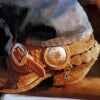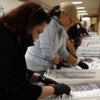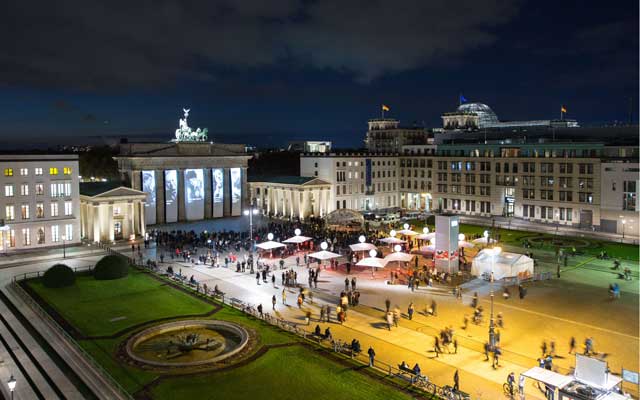Last week marked the 75th anniversary of Kristallnacht—“The Night of Broken Glass.” On the night of November 9, 1938, across Germany, Austria, and the Sudetenland, synagogues were burned, Jewish-owned businesses were looted, and 91 people were killed.
An estimated 30,000 Jewish men were carted off to prison or concentration camps, while many Jewish women and children hid in attics or attempted to flee the country in the wake of the horror. Historians often point to Kristallnacht as the beginning of the Holocaust.
The Daily Signal depends on the support of readers like you. Donate now
At an event commemorating Kristallnacht, held at the United States Holocaust Memorial Museum, German Ambassador Peter Ammon addressed the attendees, including international diplomats and survivors:
Three generations after the Second World War, this dark chapter of our history is by no means forgotten. You will find that today, we Germans—and I am explicitly including the young generation—discuss our past and our responsibility more than ever before. The remembrance of the years of dictatorship, the war, and the Holocaust are part of our identity, and we carry it inside us.
Following the Ambassador’s remarks, survivors described their shock at the wanton destruction of that night. One woman recalled how men spent 30 minutes systematically destroying her family’s home before moving on to the next Jewish residence. Another remembered local police overseeing the destruction and looting of Jewish homes in her town. However, a third eyewitness recalled a neighbor risking personal danger to warn her father not to go to the synagogue that night.
In memory of Kristallnacht, over 100 businesses in Berlin hung adhesives on their windows, creating an image of broken glass. Projects such as “stumbling blocks” are modern-day reminders that individuals are behind the statistics of the Nazi era. Seventy five years later, the number of Kristallnacht and Holocaust survivors continues to dwindle, but their experiences have not been forgotten.
Paige Haynes is currently a member of the Young Leaders Program at The Heritage Foundation. For more information on interning at Heritage, please click here.





























